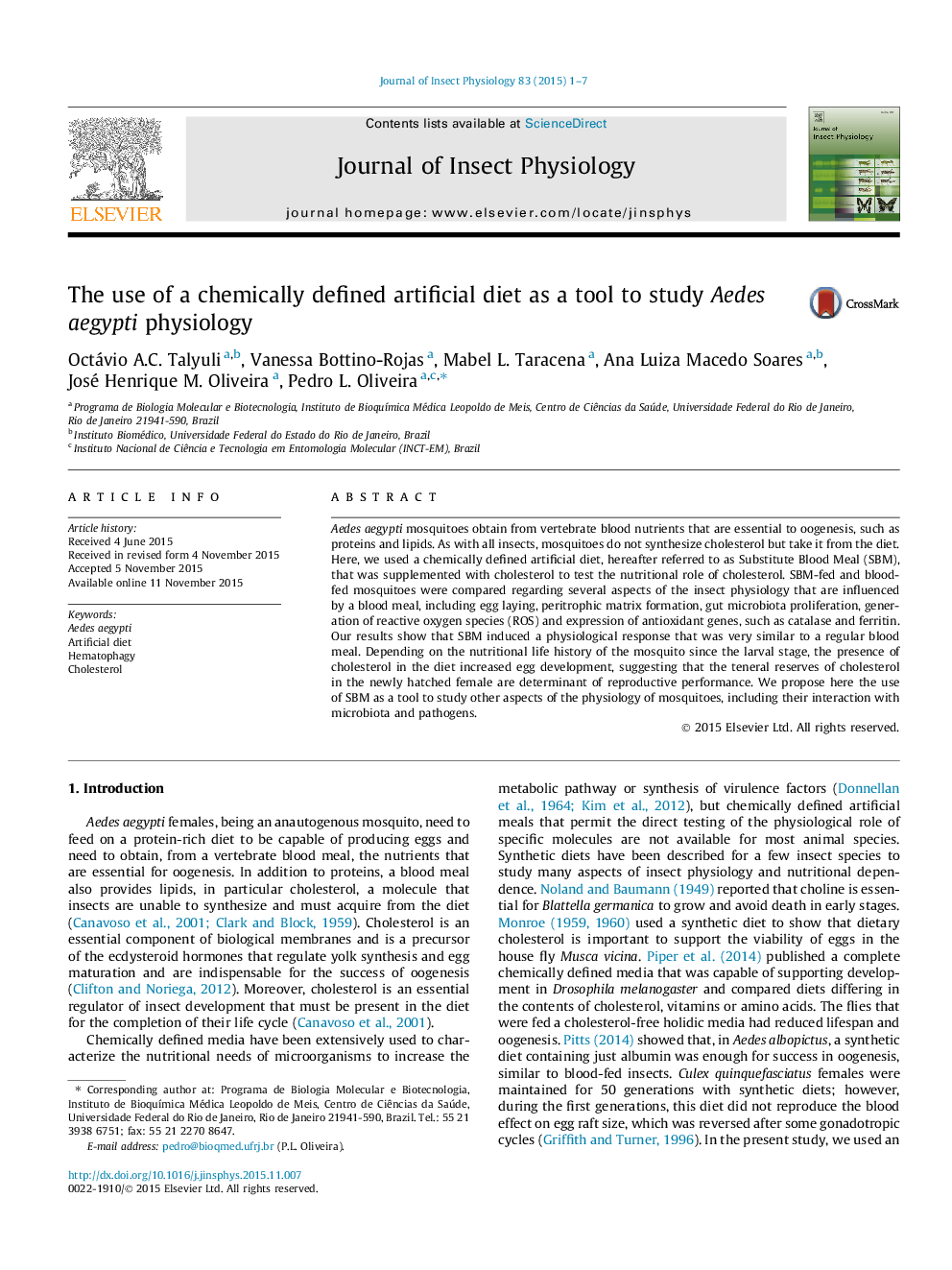| Article ID | Journal | Published Year | Pages | File Type |
|---|---|---|---|---|
| 5921420 | Journal of Insect Physiology | 2015 | 7 Pages |
â¢The use of a chemically defined artificial diet for Aedes aegypti was described.â¢The artificial diet was named as Substitute Blood Meal (SBM).â¢The SBM worked as a blood surrogate regarding several aspects of mosquito physiology.â¢Dietary cholesterol relevance for oogenesis was tested using this artificial meal.
Aedes aegypti mosquitoes obtain from vertebrate blood nutrients that are essential to oogenesis, such as proteins and lipids. As with all insects, mosquitoes do not synthesize cholesterol but take it from the diet. Here, we used a chemically defined artificial diet, hereafter referred to as Substitute Blood Meal (SBM), that was supplemented with cholesterol to test the nutritional role of cholesterol. SBM-fed and blood-fed mosquitoes were compared regarding several aspects of the insect physiology that are influenced by a blood meal, including egg laying, peritrophic matrix formation, gut microbiota proliferation, generation of reactive oxygen species (ROS) and expression of antioxidant genes, such as catalase and ferritin. Our results show that SBM induced a physiological response that was very similar to a regular blood meal. Depending on the nutritional life history of the mosquito since the larval stage, the presence of cholesterol in the diet increased egg development, suggesting that the teneral reserves of cholesterol in the newly hatched female are determinant of reproductive performance. We propose here the use of SBM as a tool to study other aspects of the physiology of mosquitoes, including their interaction with microbiota and pathogens.
Graphical abstractDownload full-size image
